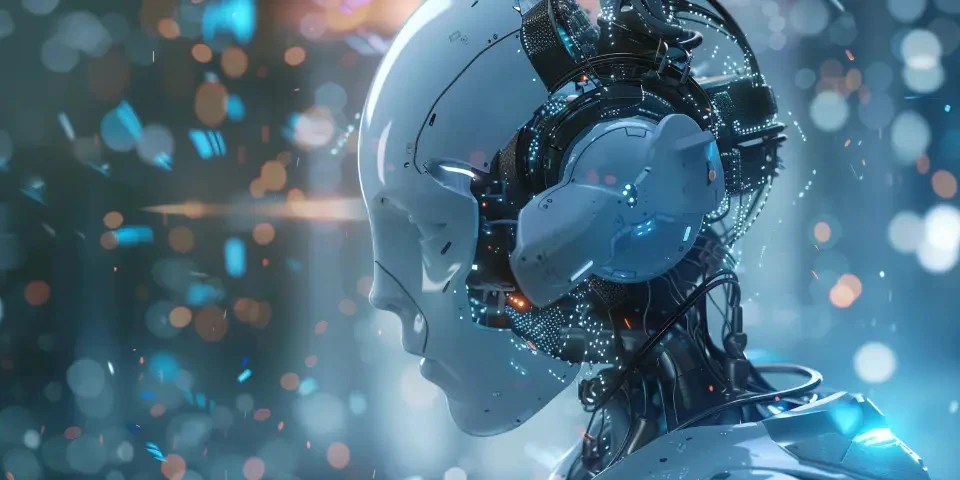The AI Revolution How Intelligent Technology is Revolutionizing the User Experience
Artificial Intelligence (AI) has rapidly emerged as a transformative force in various industries. Its ability to analyze vast amounts of data, simulate human intelligence, and automate tasks has revolutionized the user experience across different domains. In this article, we will explore how AI is reshaping the way we interact with technology from various perspectives.
1. Personal Assistants:
AI-powered personal assistants like Siri, Google Assistant, and Amazon Alexa have become an integral part of our daily lives. These virtual assistants can perform a wide range of tasks, from answering questions and setting reminders to controlling smart home devices. They have greatly enhanced user convenience and efficiency.

2. Natural Language Processing (NLP):
NLP is a branch of AI that enables machines to understand and interpret human language. It has greatly improved the accuracy of voice recognition systems, chatbots, and language translation tools. NLP algorithms can now understand context, sentiment, and intent, resulting in more meaningful and personalized interactions with users.
3. Recommendation Systems:
AI-powered recommendation systems, commonly seen in e-commerce platforms and streaming services, analyze user preferences, behavior, and historical data to provide personalized recommendations. These systems leverage machine learning algorithms to continuously learn and adapt, ensuring users receive tailored suggestions that match their interests.
4. Image and Speech Recognition:
Advancements in computer vision and deep learning algorithms have enabled sophisticated image and speech recognition systems. These technologies are now used in various applications such as facial recognition for authentication, voice commands for smart devices, and image-based search engines. The accuracy and reliability of these systems have significantly improved, enhancing the overall user experience.
5. Autonomous Vehicles:
AI plays a vital role in the development of autonomous vehicles. Machine learning algorithms and computer vision systems enable cars to perceive their surroundings, detect obstacles, and make real-time decisions. This technology has the potential to revolutionize transportation, making it safer, more efficient, and user-friendly.
6. Healthcare Applications:
The integration of AI in healthcare has brought about numerous advancements. AI-powered diagnosis systems can analyze medical data, symptoms, and patient history to provide accurate and timely diagnoses. Additionally, AI algorithms can predict disease outbreaks, assist in drug discovery, and personalize treatment plans, significantly improving patient outcomes and overall healthcare experience.
7. Virtual Reality and Gaming:
AI technologies, combined with virtual reality, have revolutionized the gaming industry. AI algorithms can create intelligent and adaptive non-player characters (NPCs) that provide challenging gameplay experiences. Furthermore, AI can enhance virtual reality simulations by dynamically adjusting the environment based on user behavior, resulting in more immersive and realistic gaming experiences.
8. Cybersecurity:
AI has become a powerful tool in combatting cyber threats. AI algorithms can analyze vast amounts of data to detect patterns and anomalies, aiding in early threat detection and prevention. Additionally, AI can automate security processes, minimizing human error and enhancing overall system security, thus providing users with a safer online experience.
9. Smart Home Automation:
AI-powered smart home devices, such as voice-controlled assistants and connected appliances, have simplified and automated various aspects of daily life. From adjusting home temperatures and controlling lights to managing home security systems, these devices enhance user comfort, convenience, and energy efficiency.
10. E-commerce Chatbots:
E-commerce platforms leverage AI-driven chatbots to improve customer support and engagement. These chatbots can handle customer queries, provide product recommendations, and assist in the purchasing process. They offer 24/7 availability, faster response times, and personalized interactions, resulting in a more seamless and satisfying user experience.
Frequently Asked Questions (FAQs):
Q: Can AI completely replace human interaction?
A: While AI can automate certain tasks and enhance interactions, human interaction still holds importance in many scenarios. AI should be seen as a tool that augments human capabilities rather than entirely replacing them.
Q: How does AI impact job markets?
A: AI has the potential to automate certain jobs, but it also creates new opportunities. While some roles may become obsolete, new jobs related to AI development, maintenance, and data analysis are being created.
Q: Is AI only for large enterprises?
A: No, AI technology is becoming more accessible and affordable, making it feasible for businesses of all sizes to adopt and leverage its benefits.
References:
1. M. Arif, et al. "Artificial Intelligence in E-commerce: A Systematic Literature Review, Research Agenda, and Extensions." Information Systems Frontiers, 2021.
2. S. Shah, et al. "Improving Healthcare Delivery Through Artificial Intelligence." IEEE Intelligent Systems, 2020.
3. P. Rajkomar, et al. "Machine Learning in Medicine." The New England Journal of Medicine, 2020.
